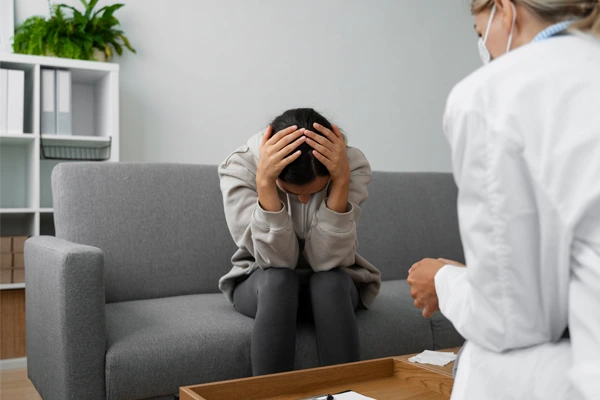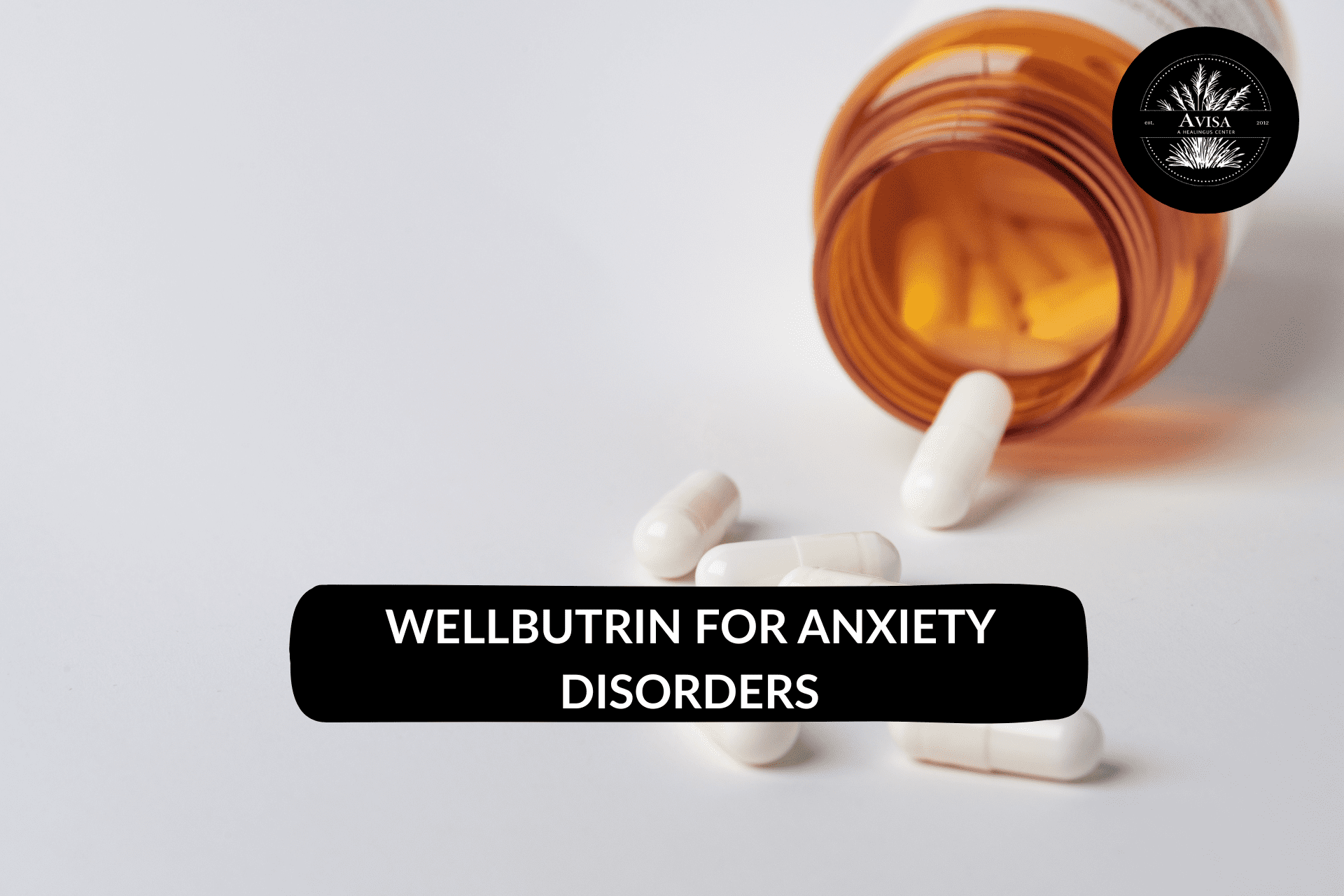When ADHD begins to impact your ability to manage daily life, treatment can feel like both a relief and a question mark. For many adults, the path to treatment starts not in a doctor’s office, but in moments of quiet frustration. Missing deadlines. Forgetting appointments. Snapping at loved ones without meaning to. That’s often the turning point.
If you’re reading this, there’s a good chance that the struggle to stay focused, calm, or organized isn’t just an occasional issue; it’s a daily battle. Maybe you or someone you care about has felt overwhelmed by distractions, mood swings, or a sense of being stuck. Maybe you’ve tried to push through it alone, thinking it was just a phase or a personal failing.
But this isn’t about weakness. It’s about understanding what’s really happening, and finding the right way forward.
Living with ADHD isn’t just about scattered thoughts or hyperactivity. It can affect every part of life: relationships, work, school, and mental health. Treatment offers hope, but it also brings questions. What causes people to seek ADHD treatment? What are the risks and benefits? How can you be sure you’re making the right choices?
This guide is here to walk you through those answers, with honesty and clarity. Not to convince you. Not to pressure you. Just to help you understand, so you can move forward with confidence. If you’re looking for ADHD treatment in Toms River, this could be the starting point of a life-changing journey.
What Is ADHD?
ADHD (Attention Deficit Hyperactivity Disorder) is a neurodevelopmental disorder that affects the brain’s ability to regulate attention, impulses, and activity levels. It’s often diagnosed in childhood, but it can continue, or even go undiagnosed, into adulthood.
There are three primary types of ADHD:
- Inattentive type (difficulty focusing, forgetfulness, disorganization)
- Hyperactive-impulsive type (restlessness, impulsive behavior, fidgeting)
- Combined type (a mix of both)
ADHD isn’t a result of bad parenting, laziness, or lack of effort. It’s linked to differences in brain structure, neurotransmitter activity (especially dopamine), and genetic factors. But while causes of ADHD have been widely studied, this article focuses on the causes of seeking treatment, why people turn to support, and what that support entails.
ADHD Treatment Causes: Why People Seek Help
Understanding the ADHD treatment causes, in other words, what drives people to pursue care, is the first step in creating the right plan.
1. Impaired Daily Functioning
Many people seek ADHD treatment because their symptoms are no longer manageable. This can include:
- Constantly missing deadlines
- Forgetting appointments or responsibilities
- Struggling to stay organized
- Emotional outbursts triggered by frustration
When ADHD begins to impact day-to-day life in a consistent, disruptive way, treatment becomes necessary, not optional.
2. Academic or Work-Related Challenges
ADHD can make traditional environments like school and the workplace especially difficult. People often seek treatment after:
- Repeated poor performance despite effort
- Feedback from teachers or supervisors about inattentiveness
- Losing jobs or failing courses due to forgetfulness or impulsive mistakes
This is one of the most common ADHD treatment causes, especially in teens and young adults.
3. Relationship Stress
Symptoms like impulsivity, forgetfulness, or emotional reactivity can place strain on romantic relationships, friendships, and family dynamics. This emotional toll is often a turning point for individuals to seek professional support.
4. Mental Health Decline
ADHD frequently coexists with conditions like:
- Anxiety
- Depression
- Low self-esteem
- Substance use disorders
These co-occurring issues can intensify the impact of ADHD and are a major cause for treatment. Addressing only the surface symptoms without looking at these deeper layers can lead to ineffective or temporary results.
5. Misdiagnosis or Late Diagnosis
Many adults arrive at treatment after years of being misdiagnosed with depression or anxiety. Once a proper diagnosis is made, understanding ADHD treatment causes becomes essential to tailoring an effective care plan.
Types of ADHD Treatment
Choosing the right form of treatment depends on the individual’s needs, lifestyle, age, and symptom severity. Let’s explore the main approaches, along with their benefits and potential risks.
1. Medication-Based Treatments
Medication is often the first line of treatment for moderate to severe ADHD. It doesn’t cure the condition, but it can reduce symptoms significantly.
Stimulants
These medications boost dopamine and norepinephrine levels in the brain, helping improve attention and reduce impulsivity.
Examples: Adderall, Ritalin, Vyvanse
Benefits:
- Quick symptom relief
- Improved focus and task completion
- Widely studied and effective for most people
Risks:
- Appetite suppression
- Sleep disturbances
- Potential for misuse or dependency
Non-Stimulants
Used when stimulants are not effective or cause side effects. These medications may take longer to work but are safer for long-term use.
Examples: Strattera, Intuniv
Benefits:
- Lower abuse potential
- Fewer side effects for some patients
Risks:
- Takes longer to notice improvements
- May not be as effective for everyone
Medication is often misunderstood. One of the most important ADHD treatment causes is the desire for better control and stability, something medication can support when used appropriately and monitored by professionals.
2. Behavioral Therapy
Behavioral therapy helps individuals develop coping strategies, improve emotional regulation, and create structured routines.
Benefits:
- Builds long-term skills
- Addresses underlying habits and thought patterns
- Effective for children, teens, and adults
Risks:
- Requires time, commitment, and consistency
- May not produce immediate results without medication support
Behavioral therapy is often used alongside medication to reinforce positive changes. It focuses not just on managing ADHD symptoms, but understanding the behaviors and thought patterns that fuel them.
3. Lifestyle Interventions
Many ADHD symptoms are made worse by poor sleep, stress, and diet. Lifestyle changes are an essential, but often overlooked, component of treatment.
Recommended changes include:
- Consistent sleep routines
- Balanced diet rich in protein and omega-3s
- Regular physical activity
- Mindfulness and meditation
These interventions are low-risk, widely beneficial, and help support other treatment methods. In some cases, they’re the starting point before more intensive approaches are considered.
4. Family Therapy and Support
Because ADHD often affects family dynamics, involving loved ones in therapy can lead to better communication and reduced conflict.
Benefits:
- Helps families understand the condition
- Encourages collaboration, not blame
- Builds a stronger support network
One of the more indirect ADHD treatment causes is family stress. Addressing this through therapy can make recovery more sustainable and less isolating.
Risks of Treatment: What to Consider
Every treatment has potential drawbacks. Understanding them is part of making informed, empowered choices.
Overdependence on Medication
Relying only on medication without behavioral support or education can lead to temporary relief, but not long-term change.
Misuse or Abuse
Stimulant medications can be misused, especially in academic or high-pressure settings. Monitoring and honest conversations with providers are key.
Emotional Fatigue
Trying multiple treatments or navigating side effects can lead to frustration. It’s important to remember that finding the right approach is often a process.
This is why individualized treatment is so critical, and why so many families in Toms River and surrounding areas trust Avisa Recovery to guide them through it.
Why Understanding ADHD Treatment Causes Matters
When someone seeks treatment, it’s rarely just because they “can’t pay attention.” It’s because life has become harder, relationships are strained, and they’re searching for stability.
That’s why ADHD treatment causes should never be minimized. They hold the key to choosing the right interventions, at the right time, with the right support.
At Avisa Recovery, we take the time to explore the full picture, your challenges, your environment, and your goals. We don’t just hand out solutions. We help you understand them, adjust them, and take ownership of your journey.
Why Avisa Recovery?
We’re proud to be a trusted source of ADHD treatment in Toms River, a place where individuals and families can finally feel understood.
- Expert clinicians who specialize in ADHD and co-occurring conditions
- Individualized care plans rooted in science and empathy
- A full-spectrum approach combining medication, therapy, lifestyle changes, and family support
- Long-term tools that help people live with ADHD, not fight against it
We believe treatment works best when it’s built on trust. Not because you have to fix yourself, but because you deserve support that sees your potential and helps you reach it.
Conclusion: You Don’t Have to Navigate This Alone
The decision to seek treatment for ADHD is often filled with uncertainty, especially when the causes behind that decision are layered and emotional. Maybe it’s years of underachievement, repeated misunderstandings, or simply the desire to feel balanced finally.
Whatever your reason, know this: ADHD is real. Treatment is possible. And there is no shame in seeking help.
At Avisa Recovery, we’re here to listen, to support, and to walk beside you, not ahead of you. Because healing doesn’t happen in isolation, it begins with understanding. And it grows with the right kind of care.
FAQs
Q. Is ADHD treatment at Avisa Recovery personalized?
A. Yes. At Avisa Recovery in Toms River, ADHD treatment plans are fully customized. We consider each person’s symptoms, lifestyle, goals, and co-occurring conditions to develop a treatment strategy that actually fits real life, not just textbook expectations.
Q. What kinds of therapy are offered for ADHD in Toms River?
A. We offer a variety of therapies for ADHD treatment in Toms River, including behavioral therapy, cognitive-behavioral therapy (CBT), medication management, lifestyle coaching, and family therapy. Our programs are designed to support both children and adults with ADHD.
Q. How can I tell if I need ADHD treatment?
A. If you’re consistently struggling with focus, impulsivity, restlessness, or organization, and it’s affecting your daily life, it’s worth seeking a professional evaluation. Avisa Recovery in Toms River offers assessments and personalized treatment options for both new and existing diagnoses.
Q. Is ADHD treatment in Toms River covered by insurance?
A. Many insurance providers do offer coverage for ADHD treatment in Toms River, especially when working with licensed facilities like Avisa Recovery. We can help you understand your benefits and options. Just reach out for a confidential consultation.
Q. Can adults get ADHD treatment in Toms River?
A. Absolutely. Adult ADHD is real and often underdiagnosed. At Avisa Recovery, we provide ADHD treatment in Toms River for adults who may have been overlooked in childhood or are only now recognizing symptoms.
Q. What makes Avisa Recovery different from other ADHD treatment centers in Toms River?
A. We focus on the whole person, not just the symptoms. Avisa Recovery combines clinical expertise, a warm therapeutic environment, and community-based support to provide ADHD treatment in Toms River that’s both effective and compassionate.











